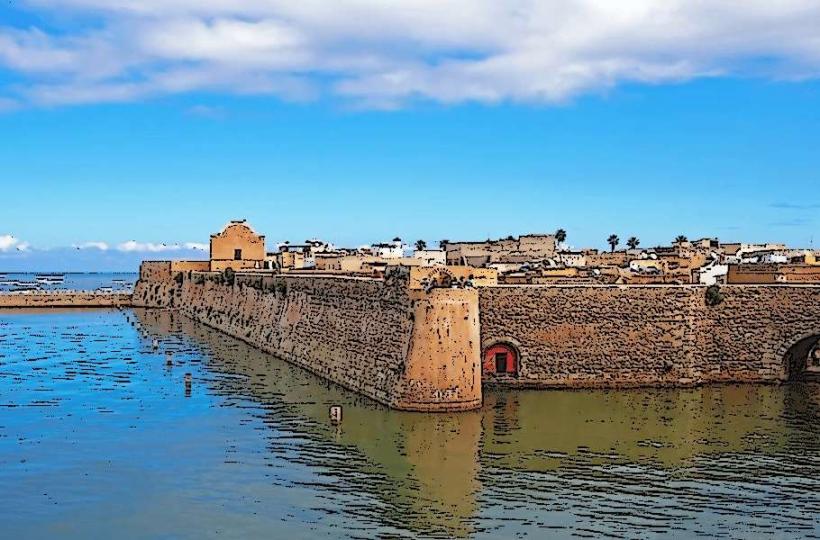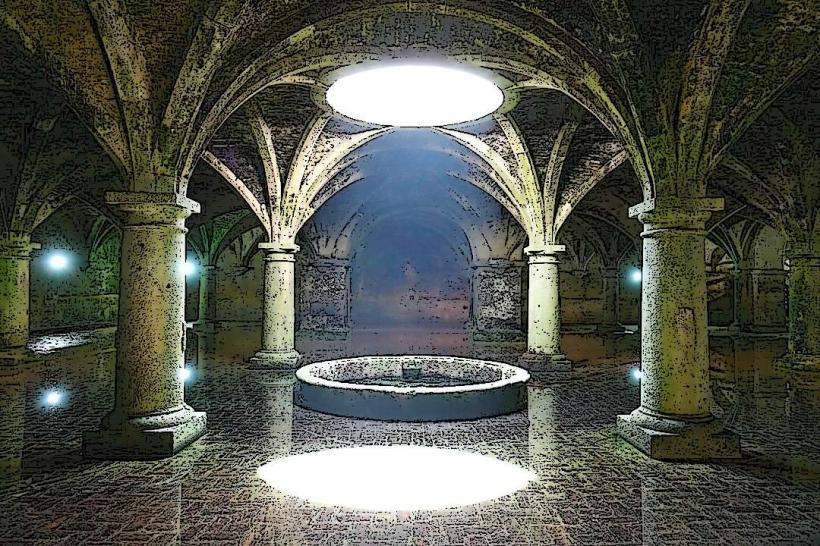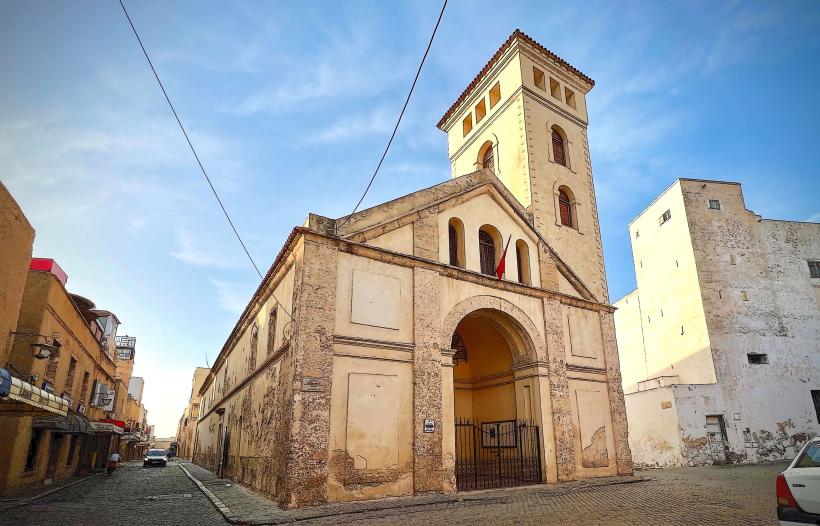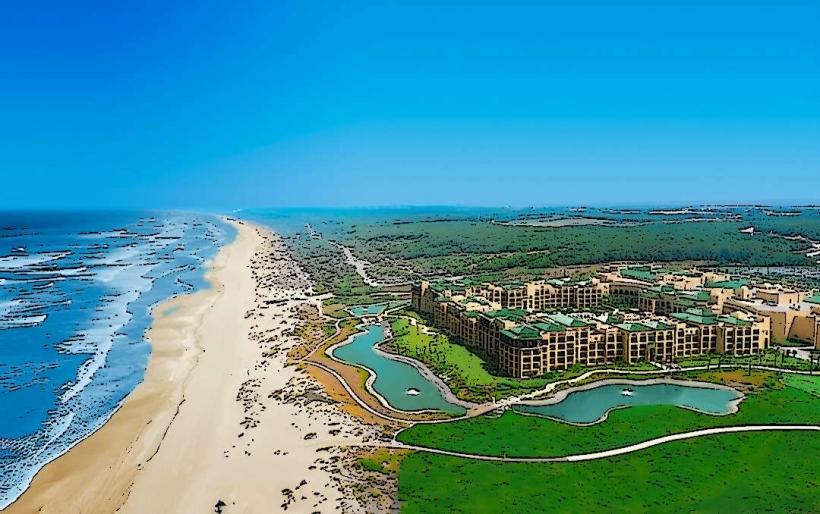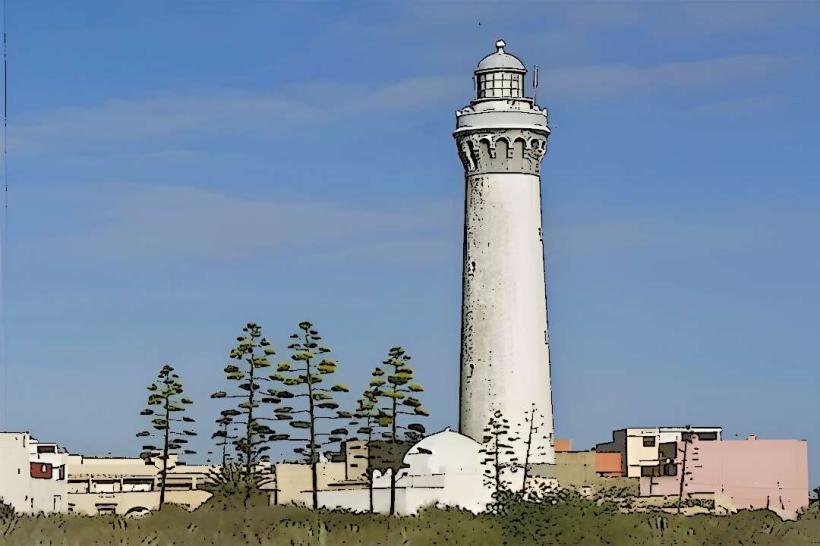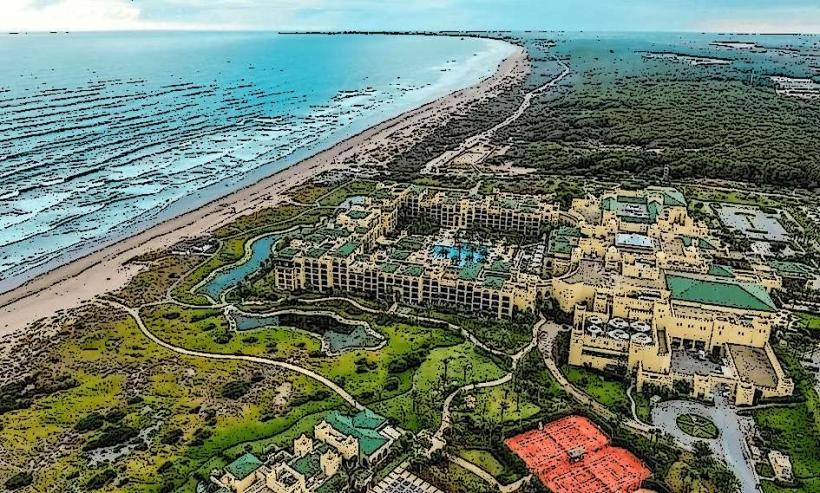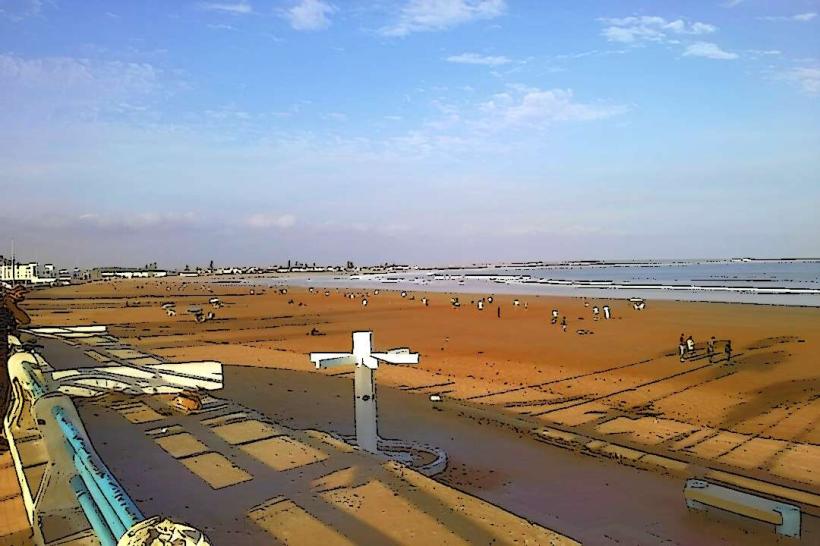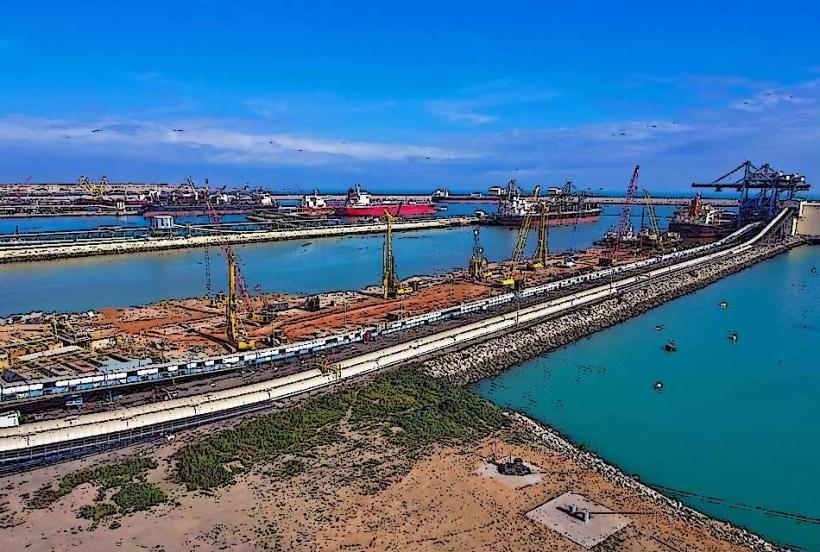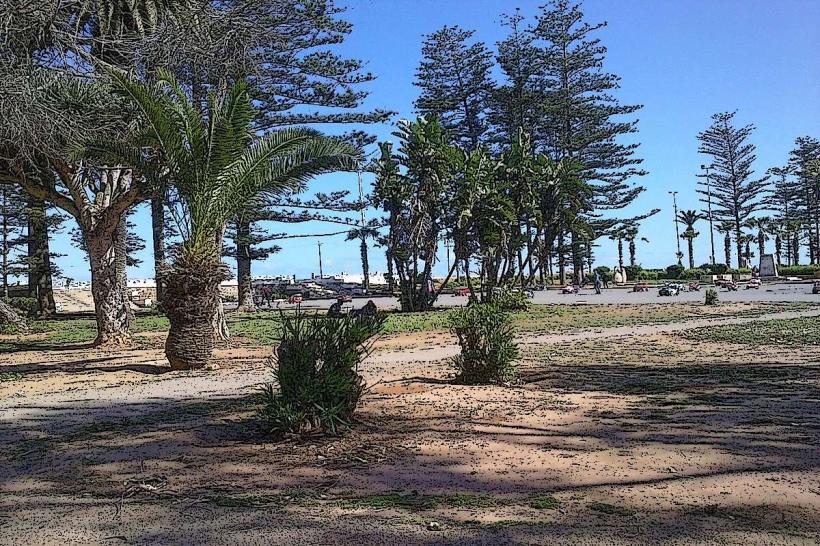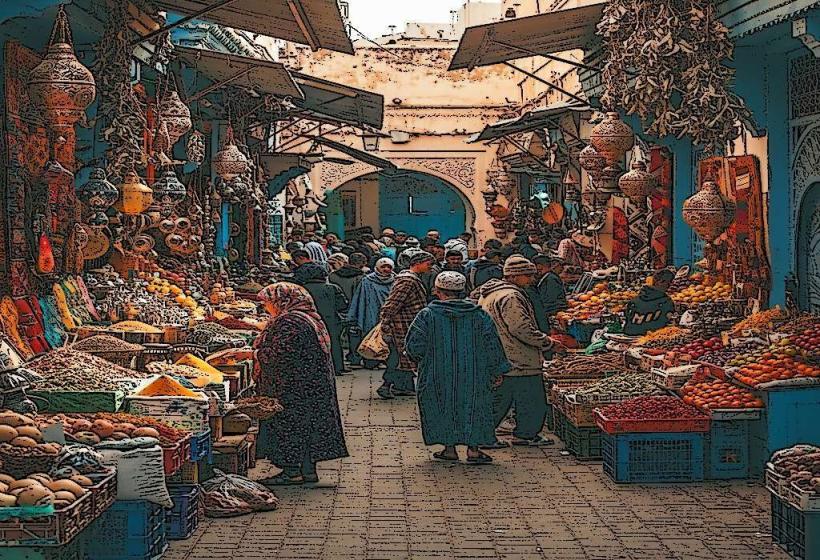Information
City: El JadidaCountry: Morocco
Continent: Africa
El Jadida, Morocco, Africa
El Jadida is a strategic port city on the Atlantic coast and the administrative center of the Doukkala-Abda region. It is situated on a low-lying coastal plain, approximately 100 kilometers southwest of Casablanca.
Historical Timeline
The city was established as a Portuguese fortress in 1502, named Mazagan. The primary event shaping its current urban form was the Portuguese occupation (1502–1769), which produced the UNESCO-listed Cité Portugaise, a massive star-shaped fortification. Following a siege in 1769, the Portuguese abandoned the city, blowing up the main gate before departing for Brazil. It remained largely uninhabited and was renamed Al-Jadida ("The New") in the 19th century when Sultan Abd al-Rahman ordered its reconstruction.
Demographics & Population
The estimated metropolitan population for 2026 is 235,000. The demographics are predominantly Arab-Berber, with a significant industrial workforce linked to the nearby Jorf Lasfar port. The median age is 30.2 years.
Urban Layout & Key Districts
The city is divided into three distinct zones:
Cité Portugaise: The historic walled core and UNESCO World Heritage site.
The Centre Ville: The 19th and 20th-century expansion with wide boulevards and administrative buildings.
The Beachfront (Corniche): A modern leisure and residential strip extending toward the northeast.
The city is oriented toward its harbor and the Atlantic, with the fortification acting as the architectural anchor.
Top City Landmarks
The Portuguese Cistern: A subterranean 16th-century gothic vaulted chamber.
The Portuguese Ramparts: Massive walls and bastions offering views of the Atlantic.
Church of the Assumption: A Manueline-style 16th-century structure.
The Great Mosque: Featuring the only five-sided minaret in Morocco (converted from a watchtower).
Mazagan Beach Resort: A large-scale luxury gaming and golf complex located 15 km north.
Transportation Network
Intra-city transit is facilitated by "Petit Taxis" (bright yellow hatchbacks) and a municipal bus network. There are no metro or tram systems. Inter-city transport is managed via the El Jadida railway station (connected to the Casablanca-Rabat line) and the CTM bus terminal. Traffic density is moderate, though the coastal road experiences high volume during the summer beach season.
Safety & "Red Zones"
The general safety level is high. Petty theft is less frequent than in larger coastal hubs. There are no specific "red zones," though the interior alleys of the Cité Portugaise and the darker sections of the southern beach should be navigated with caution after dark. Common scams involve "unpaid" historians offering unsolicited tours of the Cistern area.
Digital & Financial Infrastructure
The average internet speed is 40–55 Mbps. Main mobile carriers are Maroc Telecom, Orange, and Inwi. Credit card acceptance is high in the Mazagan resort and modern hotels but rare within the historic quarter. ATMs are widely available along Avenue Mohammed VI and near the post office.
Climate & Air Quality
Temperatures range from 10°C in winter to 26°C in summer. The Atlantic proximity provides a cooling effect and stable air quality. Significant weather risks include heavy Atlantic swells during winter and occasional industrial haze from the Jorf Lasfar complex when winds shift south.
Culture & Social Norms
Tipping of 10% is standard in restaurants. Handshakes are the standard greeting. Dress codes are moderate; modest attire is expected in the Cité Portugaise, while beachwear is common along the Corniche. Alcohol is restricted to licensed hotels, specific bars, and the casino at the Mazagan resort.
Accommodation Zones
Cité Portugaise: Recommended for historic riads and proximity to monuments.
The Corniche: Recommended for modern hotels, beach access, and nightlife.
Local Cost Index
1 Espresso: 14 MAD ($1.40 USD)
1 Standard Lunch (Seafood/Tagine): 80 MAD ($8.00 USD)
1 Petit Taxi Trip: 10 MAD ($1.00 USD)
Nearby Day Trips
Casablanca: 100 km (1.5 hours)
Azemmour (Artistic river town): 15 km
Sidi Bouzid (Surfing beach): 5 km
Oualidia (Lagoon and oysters): 75 km
Facts & Legends
El Jadida is known as the "Deauville of Morocco" due to its 19th-century popularity with European tourists. A local historical oddity is the Portuguese Cistern, which was "lost" for centuries until it was accidentally rediscovered in 1916 by a shopkeeper attempting to enlarge his store. Legend says that the city’s five-sided minaret was designed to prevent the "evil eye" from settling on any single flat surface of the tower.

